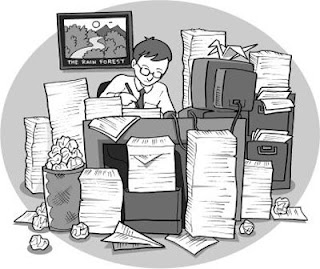
- Laptop Computer
- iPad
- iPhone
- Instapaper
- Dropbox
- Google Docs
- Endnote
- Skype
- Kindle
My system currently involves - Skyping with my supervisor (as she lives in Canberra), organised by using Google Calendar and sending summaries and notes of my readings via Google Docs. My notes are created by utilising ‘Notes’ on my iPad or using Microsoft Word on my Laptop. My readings are either eBooks (Kindle or iBooks) or online journal articles saved with Instapaper. I keep a record of all my literature and references using Endnote. All my notes, summaries and literature are backed up using Dropbox.
So far, so good.
There are the aspects of my PhD that I believe will work in my favour, including:
- The PhD will use discourse analysis as a methodology
- There is no perceived data collection
- My supervisor is extremely keen to use electronic means
- I’m a firm believer in the concept of ‘anywhere anytime’ learning
However, there are aspects of my PhD that I believe will make it difficult, including:
- A large component of PhD is a historical analysis of literature, which may not be available electronically
- I’m a ‘scribbler’- and by that I mean I like mind mapping as a cognitive tool. I’m yet to find an efficient mind mapping tool that I like .
It’s only very early days, but my Paper Less PhD is in full swing. I’m hoping that I can keep a running account of my progress. I’m hoping that in the end, the only piece of paper I use is the certificate at my graduation.



